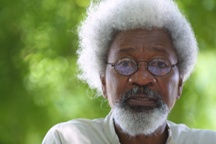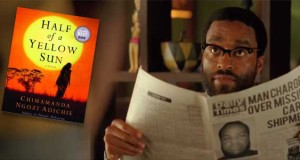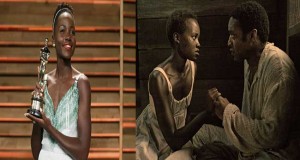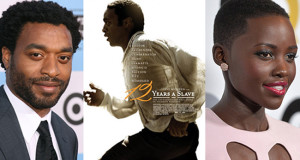Nigerian-born, South African based filmmaker Akin Omotoso has captured Nobel Peace Prizer winner Professor Wole Soyinka’s fasicinating life in a documentary called Wole Soyinka: Child of the Forest.
Which person do you know that has both held up a Nigerian radio station and won the Nobel Peace Prize? Professor Wole Soyinka has done both and a lot more in between. He has dined with dictators, tried to mediate during the Biafran war, written some of the most influential works of literature in Nigeria, and is still going strong. All this information and more has been captured in a documentary by Nigerian-born, SA based filmmaker Akin Omotoso. He recently made a film about Nigerian literary giant, Wole Soyinka titled Wole Soyinka: Child of the Forest.
The film takes us on a brief 52 minute journey into the Nobel Peace Prize winner’s life and work. It is a true celebration of Professor Soyinka’s career by those nearest and dear to him, as well as his peers, most of whom are accomplished writers and literary critics in Nigeria. I caught up with Akin recently and got his thoughts on the film, politics, and of course about Professor Soyinka:
What made you decide to make this particular film?
The film is part of an M-NET serioes entitled GREAT AFRICANS. They selected the countries and selected the personalities they wanted to cover. Wole Soyinka was the Icon from Nigeria and I pitched to do the documentary on him and fortunately got the job.
You spoke in quite personal and passionate terms about Prof Soyinka’s works. What personal meaning do Professor Soyinka’s story and his works have for you?
I have known Prof or Uncle Wole as we call him since I was a child. I was fortunate to grow up at the Obafemi Awolowo University Campus when he was still attached to the University so I saw a lot of his work first hand. We read his plays at school, so he was very much a part of Nigerian life. For me, I loved the versatility of his work. That he didn’t just write plays. He wrote novels, poems, music the whole nine yards. He is an all rounder and that really stuck with me growing up and till date.
Professor Soyinka stood up quite strongly against the military regime in Nigeria. Do you think young people are as militant and as outspoken as there forebears – Soyinka being one of them? Why/not?
I think there a young cultural activists, they always will be. The difference for me I guess is that Wole Soyinka speaks in his work and in his life. He puts himself on the frontline. Not many of us do that and I think that the day we did that collectively there might be beginnings of change.
You spoke about the frightening way that South Africa could echo a politically repressive country like Nigeria if unchecked. Could you elaborate on this?
Simply that when leaders start doing what they like without going unchallenged we have a problem. When ‘political solutions’ are found to problems then we have a problem. When television shows are not screened or pulled off the air that’s a cause for concern. When leaders get the idea that they aren’t accountable to the people they are supposed to serve then we have a problem. I think that we see some signs of this in our country.
What were the challenges involved in making this film?
The scope of it. We only had 52 minutes and that’s a challenge when you are talking about a giant like Wole Soyinka. My one guiding light was that I wanted people to come away feeling good after watching the film. If you read Wole Soyinka’s childhood memoir “Ake” you come away feeling good. I wanted the film to have that essence. I gave a copy to the Director of Photography and the Editor to read.
Nigeria has a deeply rich literary culture, and this is partly evidenced in the calibre of writers and literary critics that you interview in the film. What is this attributed to do you think?
I think it’s the culture of Nigerians. There is a pride in the country and there is a pride in the work and a pride in wanting to share the stories, and this started very early and each generation took it to the next level to the point that you have Nigerian literature virtually everywhere in the world.
You had a screening in Nigeria recently, where the Professor is something of a hero. What was the response to the film like?
The response was great. Everyone wanted a copy and were inspired and I think as a filmmaker that’s all you can ask for.
The film recently aired on South African TV. Do you have any idea what the response to the film has been like?
It will only air next year in SA. We had a screening at Atlas Studios and it was amazing.
How can people get a hold of the film if they want to see it?
MNET should be distributing once it shows on SA TV.
When people see this film, what do you hope they walk away with?
Inspired. Because that’s what he is. Inspiring.
 PalavaHut | Online African Village News, Views and Interviews from the African Diasporas
PalavaHut | Online African Village News, Views and Interviews from the African Diasporas





